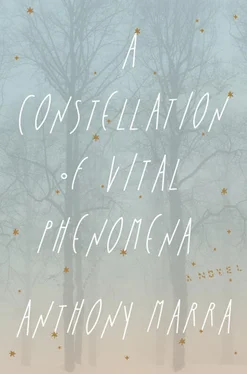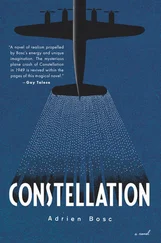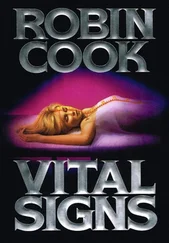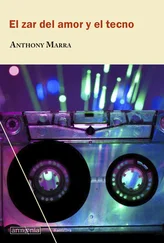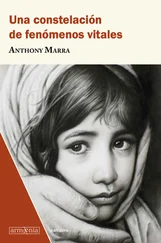The ministry offices were housed in a six-story building bordering City Park, and each evening, on her way home, she passed a homeless man whose wispy beard reached his belt line. The man, a resident of the park, was known to most of Volchansk as the City Park Prophet. She gave him a few rubles each evening, and asked, half in jest, that he remember her poor tired feet in his prayers. The City Park Prophet’s eyes would lower in gratitude, and he would promise to remember her when the end came.
She spent her Fridays at a nightclub called Nightclub, situated in what had been an aviation assembly plant. The floor spread across the eight-story hangar, wide enough to contain the gyrations of half of Chechnya. Nightclub never had reached, and never would reach, capacity. After downing drinks at the bar, Natasha and her friends shimmied their way to the center of the hangar. There, red velvet ropes created a ten-square-meter dance floor where the young, well-dressed, and secular could press against each other, shrieking and shaking in epileptic spasms of floodlight, freedom found in the ruins of empire. Natasha lost all elegance when dancing. Her heels hindered movement, but she couldn’t take them off — no matter how often it was swept, loose bolts and rust-resistant rivets appeared on the floor, gently throbbing with the bass — so she listed. The majority of her dance moves consisted of attempts to stay upright. And one Friday night, in March 1991, with her hair, heels, and three-shot tilt no different from the previous dozen Fridays, she wobbled into Sulim’s arms.
His 1990 black BMW convertible had been stolen in Belgium and driven across all of a European winter to reach him. He had three missing teeth — and one so black it was clearly on the way out — because for all his money, he still couldn’t afford a decent dentist. He had the habit of raising his voice at the ends of his sentences, turning declarations into questions, as though when he whispered her name he wasn’t really sure to whom he was talking. He had a bed the size of Natasha’s bedroom, two Soviet pistols, his great-great-grandfather’s kinzhal still brown with the blood of Imperial infantrymen, a short beard that never grew, eleven toes, and a long white curve of scar tissue on his pelvis that, in the seven months they saw each other, Natasha learned to desire and despise in equal measure. He had a cousin in the upper air of the obshchina , the Chechen mob. The cousin, educated at the London School of Economics, a man whose occupation reduced his life expectancy to that of a gulag laborer, had taught Sulim to open new markets with a crowbar. Their first month together was perhaps the happiest of Natasha’s life. The following six, perhaps the most miserable.
The cancer in her mother’s liver metastasized and she spent the last ten weeks of her life in the chlorinated air of Hospital No. 6. Through Sonja’s connections, her father was allowed to spend the nights on the floor beside her bed, cocooned in his olive Red Army sleeping bag. Natasha gave Sulim a key to the flat. She fit her fingers in the furrows between his ribs, thought of them as rungs. The whole world was falling, but here was someone strong enough to hold on to. The two men with whom she’d been intimate previously had treated her like a slight, fragile thing, as if trying to fuck a Grecian urn. Sulim held her as if unafraid of crushing her kidneys. In her shoulders, he left perfect molds of his imperfect teeth that would turn red in the morning. He asked her to scratch him and her longer nails drew a tiger’s coat on his back. Her body by itself seemed a beautiful but useless instrument. Sulim’s grip on her wrists, his canines gnawing at her clavicle, this pressure in her chest, this flushed flesh.
But Sulim never stayed until morning. At two A.M., he began to yawn. He stood and ran his fingers across his stomach, pinching the skin. He had more money hidden in his mattress than the entire apartment block had in the bank, yet he had the waistline of a pauper. His navel had stretched to the shape of an almond. The waxen light of the corner lamp wrapped around his chest as he turned. His spine curved into a thin ridge when he reached for his socks, and she counted the rises of vertebrae. He wore wide-collared Hawaiian shirts. He fumbled with the spare button, slightly too big for his trousers’ buttonhole. At times it felt like trying to build a meaningful relationship with a tooth fairy. He came at night, leaving behind presents, but always left by two. By the second month, he was leaving at one-thirty. Then one. He shrugged when she demanded to know why he hadn’t introduced her to his family, why he didn’t dance with her at Nightclub, why he dressed her as a mistress rather than a partner. “Because that’s what you are,” he said, and walked out the door.
The state police arrested him in November 1991 for fraud. An informer had linked him to the notorious vosdushniki —“air men,” they were called, for their ability to draw billions of rubles from the air. Using falsified promissory notes, they authenticated bank transfers from an invented company in Chechnya to an invented company in Moscow. Enough paperwork went through for the obshchina men to withdraw the forged transfer in cash from Moscow banks. A bribe from Sulim’s cousin released him from custody within two days, but the government still had enough thump in its baton to force him into hiding. He arrived at Natasha’s flat at five in the afternoon. The living room curtains were drawn open and the smog-filtered sunset bathed his cheeks in ochre. She had never before seen him in natural light. In his left hand he held a blue nylon duffel bag. He explained the situation, drained of the swagger that had so entranced and infuriated her. He couldn’t stay with family or friends, no one with whom he had a known relationship. He would stay here with her. She’d never seen him so in need. For the first time in their relationship, she realized that she had more power than he, and this was all she needed to let him go. He kept glancing to his feet. She would miss his eleventh toe. “I’m sorry,” she said. “You need to leave.”
Her mother passed a few weeks later. Natasha was at work, her sister at school, her father at the dessert counter in the hospital cafeteria. No one was there to see what the dying woman saw, in her final moments, when her uncle, the man who had disappeared when she was no more than twelve centimeters of fetal tissue in her mother’s belly, emerged from the yellow wallpaper and led her the rest of the way. Ten days after the funeral, Natasha’s father took a lorry job in Turkmenistan. On the morning he left, he wore a red sweater with golden diamonds woven across the chest. He had never filled it out, as her mother had predicted he would when she had given it to him five Christmases earlier. He would be wearing that sweater two and a half years later, just north of the border, when a stolen cement mixing truck would slam into his lorry cabin, cutting short his life, his final haul, and his five-week odyssey to return home to his girls.
Natasha went to work but couldn’t pay attention to the reports she copied, collated, and conveyed. She lost her job soon after the declaration of national independence, when all essential oil ministry personnel were transferred to Moscow, her bloated boss included. She drifted, a kelp rope on the tide that washed away her country, family, and future. She made dinner one night, Sonja the next. Having graduated university at the top of her class, Sonja was now in her third year of medical school. She studied while they ate, paying more attention to diseases of the digestive system than to her dinner. Natasha tried to construct conversation with scraps of the day: Did you see the car accident on Lenin Square? What classes did you have today? But Sonja didn’t believe in small talk and answered in monosyllables, a fact Natasha would remember when, sitting at the same table four and three-quarter years later, Sonja tried to convince her of its therapeutic qualities.
Читать дальше
